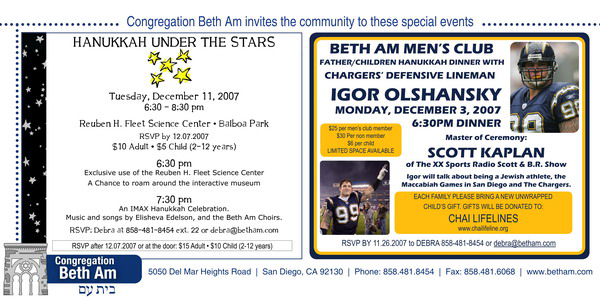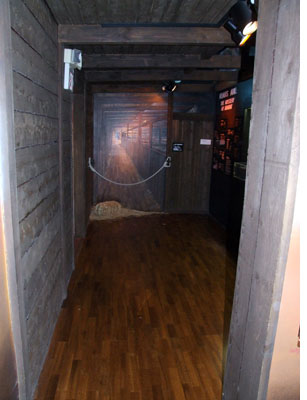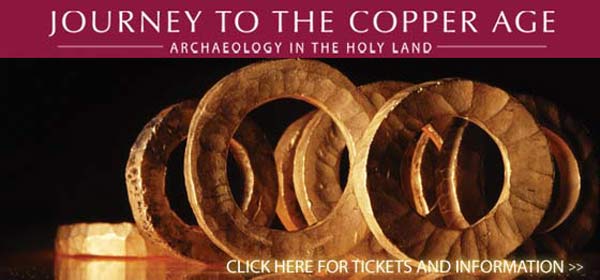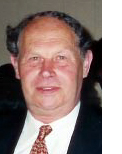| |
|



THE VIEW FROM JINSA
Annapolis conference creates false symmetry between Palestinian terror, Israeli response
By Shoshana Bryen
 ANNAPOLIS, Maryland—There were no big waves, so it is tempting to think nothing happened at Annapolis. But the joint statement of which the White House seems so proud minimizes the sacrifices Israel has made; misrepresents the "occupation"; ignores Arab responsibility for the problem that "Palestine" is meant to address; and minimizes the damage to Israel of 60 years of Arab wars, rejection and terrorism. Thus, it starts small waves that may gather momentum and wreak havoc later in the form of pressure on Israel to produce incentives to show progress. ANNAPOLIS, Maryland—There were no big waves, so it is tempting to think nothing happened at Annapolis. But the joint statement of which the White House seems so proud minimizes the sacrifices Israel has made; misrepresents the "occupation"; ignores Arab responsibility for the problem that "Palestine" is meant to address; and minimizes the damage to Israel of 60 years of Arab wars, rejection and terrorism. Thus, it starts small waves that may gather momentum and wreak havoc later in the form of pressure on Israel to produce incentives to show progress.
There were the usual platitudes about "an end to bloodshed, suffering and decades of conflict... new era of peace... justice, dignity, respect and mutual recognition... culture of peace and nonviolence..." Isn't that OK?
Shoshana Bryen
No. The last clause reads, "to confront terrorism and incitement whether committed by Palestinians or Israelis." Only one party has failed to stop terrorism and incitement and to this day pays preachers and teachers who openly teach and call for the violent destruction of Israel, and has to this day not condemned the Qassam rocket attacks against Israel that it, in fact, started when Abu Mazen was in control of Gaza. It is a false symmetry, blaming everyone and thus no one, erasing cause and effect, equating Palestinian terrorism with Israel's response.
The parties recommitted to the long-abandoned Road Map. But the United States "will monitor and judge the fulfillment of the commitment of both sides... implementation of the future peace treaty will be subject to the implementation of the road map, as judged by the United States." This leaves the United States as arbiter of Israel's security. Far be it from us to tell the Israeli government how to govern, but for the United States to judge whether another country has an "acceptable" level of security seems to cede an important sovereign obligation.
After reading the declaration, the President made a few additional remarks - lines of which were lifted from his excellent June 24, 2003 speech, but reconfigured to change history in a way that cannot go unchallenged. "The Israelis must do their part. They must show the world that they are ready to begin - to bring an end to the occupation that began in 1967 through a negotiated settlement."
As if "Palestine," to the extent that one believes in it, was occupied in 1967 and not in 1948.
To suggest that Israel has waited until 2008 to begin ending its administration of the territories minimizes the faith in democratic principles and the enormous risks Israel took - deadly risks, as it turned out - in helping to establish the Palestinian Authority under the Oslo process. The Palestinians would have had an independent state long ago, except that they used their freedom to establish a corrupt, terrorist dictatorship - in which Abu Mazen was Deputy to Yasser Arafat.
More important, Israel's inability to achieve legitimacy in the region is unrelated to 1967 or to Palestinians. It is related to the failure of Arab states to reconcile to Israel's establishment 60 years ago, and the ongoing failure of those states to address the Palestinian refugee problem they created. The President failed to demonstrate a serious understanding of history and thus lets the Arabs off the hook for a solution.
The Annapolis meeting itself was not a bad thing, but the President of the United States should not be party to diminishing Israel's very real sacrifices to survive, thrive and create a modern, successful democratic country.



THE JEWISH CITIZEN
Creationist museum seeks to prove Bible
By Donald H. Harrison
Editor’s Note: The slogan of our publication is that “there is a Jewish story everywhere.” From time to time, this column will help to demonstrate the thesis by visiting areas without synagogues.
 SANTEE, California—On a frontage road of State Highway 67, a building in an industrial park bears the name “Museum of Creation and Earth History.” Initially developed by the Institute for Creation Research at Christian Heritage College in neighboring El Cajon, the museum offers exhibits in support of the belief that the Bible is literally true. Here, when people talk about God creating the heavens and the earth in six days, they mean six 24-hour days. When they talk of a flood in the time of Noah covering the earth, they mean the whole earth, including the Americas, not just the Middle East. SANTEE, California—On a frontage road of State Highway 67, a building in an industrial park bears the name “Museum of Creation and Earth History.” Initially developed by the Institute for Creation Research at Christian Heritage College in neighboring El Cajon, the museum offers exhibits in support of the belief that the Bible is literally true. Here, when people talk about God creating the heavens and the earth in six days, they mean six 24-hour days. When they talk of a flood in the time of Noah covering the earth, they mean the whole earth, including the Americas, not just the Middle East.
Donald H. Harrison
The staff of the Institute for Creation Research includes scientists of various disciplines who dispute some of the cherished ideas of what they call conventional science. If the biblical account of the genesis of the world is correct, then the world is only thousands of years old, not millions upon millions of years. Theories that the various species of animal—and man himself—evolved from lower forms of life are rejected. So too are scientific notions about how the age of objects can be carbon dated. Additionally the creationists dispute conventional scientists’ explanations for how mountain ranges formed—as they believe the process was completed over a much shorter time span. In summary, almost everything taught in public schools about who we are and where we come from is disputed.
The curator, Cindy Carlson, recently escorted me through the museum, perhaps feeling a little wary about talking to a journalist representing a Jewish publication and not knowing whether or not I had an agenda that was adverse to her Christian beliefs. However, my intention was neither to agree nor to disagree with the museum’s point of view, but rather to report what the experience was like going through the facility.
It may have been my imagination, but I sensed that Carlson became more relaxed as the tour progressed. At the end of the tour, she even shared with me a little bit about her own life: Back in the 1970's, while a 17-year-old biology student at Virginia Polytechnic Institute, “I met Jesus personally—as a spiritual experience.” This created some conflict in her life, as she had grown up in a military household, where her father was a believer in science and a worshiper at an Episcopal church. At college, her professors regularly told her things "the Bible didn’t say, and I was trying to grow in my faith and read the Bible, and they just wouldn’t go together. My classes just created more and more doubt, and it was very difficult for me.” Then she encountered the works of Henry Morris II, who wrote The Twilight of Evolution and who would found the Institute for Creation Research. “That book really saved my faith,” Carlson said. After she and her husband raised four children, she enrolled at the Institute for creation Research as a graduate student. Today, they are members of River Christian Fellowship in Poway.
 We walked through rooms illustrating the first six days of creation, and into another room depicting Noah’s Ark. “The Ark is 450 feet long,” Carlson lectured as we toured. “You just measure 300 cubits by 1 ½, and so eight people were on the Ark, even though the Bible was very clear that Noah was a preacher of righteousness. Of course that is found in the New Testament…. Obviously no one listened, so we had eight people on the Ark, along with two animals of every kind, seven of every clean kind, and seven of every kind of bird.” We walked through rooms illustrating the first six days of creation, and into another room depicting Noah’s Ark. “The Ark is 450 feet long,” Carlson lectured as we toured. “You just measure 300 cubits by 1 ½, and so eight people were on the Ark, even though the Bible was very clear that Noah was a preacher of righteousness. Of course that is found in the New Testament…. Obviously no one listened, so we had eight people on the Ark, along with two animals of every kind, seven of every clean kind, and seven of every kind of bird.”
The English word “kind,” translated from the Hebrew, is important to understand, Carlson said, because it is not what is meant today by the word “species.” Rather “kind” refers to a much larger group of animals, perhaps at the genus or at the family level. Assuming there was a kind of dog on the Ark, that dog was a prototype for the many breeds of dogs that would follow over the years, as well as for wolves and coyotes. “The two dogs on the Ark had the genetic potential for all the dogs,”
Carlson said. “And we don’t call that evolution. We have no problem with the idea of variety in ‘kind.’ We do have a problem with the evolutionary idea than an amoeba can become a man over enough time.”
So the animals on the Ark were forerunners of what we have today? I asked.
“That is correct. That is not only our theological stand, but we believe a scientific stand. No matter how many lab experiments they do with fruit flies or bacteria, or any of those creatures, they still are fruit flies and bacteria. The genetic potential was in the DNA.
Carlson returned to the concept of ‘kind’ when she began discussing the Tower of Babel, from whence the Bible reports God scattered the people and confused their tongues.
“In Genesis 11, the very first verse says the whole world spoke the same language and if the Bible history is true, then of course they did: they were all related to Noah,” said the curator. “But at this point the Bible says that God supernaturally changed their languages …and that is where we say the nations came from, this is the origin of the races. Again we are talking about genetic potential, if Adam and Eve had medium brown skin, they would have had all the genetics for all the dark skin and all the light skin.”
Just as there were prototypical animals, so too in the creationists’ view, were Adam and Eve the prototypical human beings. The difference among the races is variety within ‘kind’; no matter whether people are white, black, yellow or brown, they all are descended from common ancestors.
The course through the museum moves on through the development of other religions in the wake of the separation of people into different nations, and onto the establishment of Christianity. "We give the historicity of Jesus Christ and his life, and, of course, Christians believe that this was the redemption that God had always promised," Carlson said. "We believe Jesus was God Himself come, and we believe he is the messiah, so we share that with the children (who visit on school excursions), and we talk about his substitutionary death on the cross..."
Onward the exhibition goes to the Reformation, when the Bible was printed in many languages, and to the development of sciences, which Carlson contends would not have been possible if the Bible had been wrong. "For example, when you do an experiment, you expect it to come out the same every time. If you didn't have an orderly God who created an orderly universe, you never could do science the way we do it today. If there was evolution or chaos, you'd have change over time in the results of your experiments. You could never gauge what was in the past or what would be in the future."
Furthermore, she said, if the biblical view had been wrong, and the pantheistic view positing that animals were gods or spirits were correct, then "you would never have mice in the lab that you are studying because they could curse you. There is no power in the animal world, so you have to demystify that in order to have science."
Driving in San Diego County, as elsewhere in the United States, one notices that a war between creationism and science seems to be conducted on the back of many cars. On the same day that I visited the museum, I saw on one car a bumper sticker left over from the last presidential election. "At least Kerry believes in evolution," it said. Almost commonplace are outlines of fish stick-on symbols bearing either a cross for Christianity or the word "Darwin" for evolution. Some cars have the Darwin fish seemingly eating the Christian fish.
As amusing as this might be in cartoon or bumper sticker format, it depicts a cultural war which has raised considerable passion, even anger, especially as beliefs about man's origins are carried over into the political arena.
I asked Carlson what she thinks may be the reason for such passion and fractiousness.
"I think human pride has the most to do with that," she responded. "We want to be right, we want to be greater..."
Suppose it could be proven that she and her fellow creationists were correct? How would the lives of evolutionists be changed? I asked.
"If there is a God who made everything, and He made the rules, and we were created for Him and it is all about God, and it is not about us," she said, "then we have a responsibility to Him, we need to find out about Him, and what we are created for, and we are now accountable to God," she said.
Let's turn it around, I suggested. Suppose the evolutionists are right, and she and her fellow creationists are wrong? Would her life change?
"It would change it incredibly," she responded. "I would no longer look to the Bible for my rules. I would no longer pray every day and have the Holy Spirit show me what he wants me to do." Maybe she still would follow rules "for good" such as the Golden Rule, but otherwise, "I'm not sure what I would do. If everything came by accident—or just evolution—any idea would do.
"Probably I would not have the sense of purpose and direction that I have," she said. "Before I came to know Jesus, there was a big sense of emptiness and loneliness and a lack of understanding of who I was, and who I was in relationship to everything around me. So I think it would make a big difference."



An invitation to be a correspondent
SAN DIEGO—"The Jews Down Under" column by Garry Fabian is printed just below. In it, he rounds up news affecting members of the Jewish community in various cities in Australia. Occasionally, Fabian, who is an officer of the B'nai B'rith, also reports about Jewish happenings in New Zealand.
We know that San Diego Jewish World is read not only by Jews in San Diego, but by Jews all over the world. Whatever country you may live in, we are interested in your Jewish community. Please consider becoming a volunteer correspondent like Garry Fabian, and passing onto your fellow Jews around the world the news of your country. In such a manner, all of us will become better informed about and closer to our fellow Jews no matter where they live.
If you are interested, please contact San Diego Jewish World editor Donald H. Harrison, and send us a writing sample along with some biographical background. You will enjoy becoming a member of our worldwide staff


THE JEWS DOWN UNDER
Jewish Museum lands top tourism award
By Garry Fabian
 MELBOURNE— The Jewish Museum of Australia (JMA) has capped off a year of milestones, landing a major prize at the Melbourne Airport 2007 Victorian Tourism awards last week. MELBOURNE— The Jewish Museum of Australia (JMA) has capped off a year of milestones, landing a major prize at the Melbourne Airport 2007 Victorian Tourism awards last week.
The museum, which celebrated its 25-year anniversary at gala function in October, won the heritage and cultural tourism category of the awards ceremony at a prestige function.
The Victorian Tourism Awards - which have been held annually since 1985 -
Garry Fabian
recognise the tourism industry's leading operators, businesses and individuals, with winners announced in 25 categories.
"This award is an important recognition of our work in the wider Australian community,” JMA director Dr Helen Light said. "Our Museum has, as its central purpose, sharing and enriching the Australian Jewish experience to benefit Australia's diverse society".
As a Victorian Tourism Awards winner, the JMA is now entered into the 2007 Australian Tourism Awards, to be held in Canberra next February.
Yeshiva cost increases could affect Aussies
SYDNEY—More than 60 Australian students could be affected by a proposed Israeli Cabinet decision in the 2008 state budget to abolish funding for Jewish students from abroad. Bnai Akiva Australia alone annually sends about 60 students a year on yeshivot and experienced based programs.
Bnei Akiva federal treasurer Charissa Omsky said that Bnei Akiva Australia plans to discuss the implications with the world Bnei movement in upcoming weeks.
Currently students pay close to A$14,000 per year for the program, which Omsky said are already "greatly subsidized.” She noted that the cost involved makes it difficult for some families to send their children on the programs. "We already rely on general community sponsorship to allow kids to go away. Whether we will have to raise more money or investigate other avenues we will have to see."
"It is hard to assess what impact the funding costs could have at this stage" a spokesperson from the Zionist Federation of Australia said.Currently the 150 various programs, including yeshiva study, are partly funded by Masa, which is a joint funding effort between the Israeli Government and the Jewish Agency for Israel. While no direct funding cuts are anticipated, it was noted that increased costs in the yeshiva studies could possibly be offset by increased program costs in other programs.
Flap over Israel marks Australian election campaign
SYDNEY—Political figures in the Jewish community reacted cautiously to allegations that Wentworth's defeated Labor candidate George Newhouse's campaign manager is opposed to Zionism.
Rose Jackson - a student politician aligned with the Labor Left faction who Newhouse appointed as his campaign manager earlier this year - wrote in an email that she did no support Israel as a Jewish state.
"I oppose Zionism because it calls for the creation of a Jewish state, and I think all government should be secular," she wrote in an email while she was president of the National Union of Students.
"No Jewish, Islamic, Christian states anywhere in the world, just good, robust, secular democracies."
Newhouse, who is also one of 13 ALP candidates whose eligibility to stand for parliament has been questioned because of a possible breach of the constitution, told The AJN that he chose Jackson because she "was an enthusiastic and diligent young Labor member.” He said that she would not have remained in the position if he had been elected this week.
He said he had questioned Jackson on her views about Israel prior to her appointment, but was unaware of this specific incident.
"I spoke to Rose about her views on Israel and she told me that she had been selected to visit Israel as a Rambam scholar and that she had defended Jewish students against antisemitism on campus."
Jackson sent the email during the Second Lebanon War. It was a reaction to an email from another student politician who had written a newsletter that spoke about the Zionist "fetish for genocide and
mass slaughter of Arabs".
Jackson replied that "it is not appropriate or acceptable, however, to describe Zionist people, and by clear implication Israeli citizens and Jewish people, as having a 'fetish for genocide and the mass
slaughter of the Arab people'".
Newhouse's opponent, Malcolm Turnbull, who subsequently won the election, did not comment directly on Jackson but said he strongly supported Israel's right to exist.
"Denying Israel's right to exist as a Jewish state is to deny its right to exist, period," Turnbull said.
Australia/Israel & Jewish Affairs Council executive director Dr Colin Rubenstein said Jackson, the daughter of ABC journalist Liz Jackson, was invited to apply for the Rambam program, but said she had not been selected as a "Rambam scholar,” nor did she go to Israel as part of the Rambam program.
Rubenstein said she was recommended by representatives of the Australasian Union of Jewish Students (AUJS) because she was seen a student with substantial political standing.
During her time with the National Union of Students, The AJN understands that Jackson met with Jewish student leaders across Australia.
Former Melbourne University and AUJS student representative Alon Cassuto said he met with Jackson at Melbourne's Jewish Holocaust Museum and Research Centre and discussed local and international Jewish issues.
"From my experience she is quite interested in engaging with the Jewish community and she is far above other people on the left-wing of student politics," he told The AJN on Wednesday.
Josh Koonin, AUJS Sydney University political officer and a staffer at John Howard's Bennelong office, said he was "extremely disturbed" by Jackson's remarks.
"When there were antisemitic attacks on campus, she sent an email saying that she did not support attacks on Jewish students, but she also said that she did not support Israel's right to exist as a
Jewish State," Koonin said.
New South Wales Jewish Board of Deputies Vic Alhadeff said he agreed that the comment was unacceptable.
"But it needs to be seen in the context in which it was said, that she opposes any states being religious states, whether they are Christian, Muslim or Jewish," Alhadeff said. "The real issue is George Newhouse, however. He is the candidate, not Ms Jackson, and his track record on Israel and Jewish issues is strong and always has been so."
Meanwhile, Professor Kim Rubenstein - an expert in constitutional law at the Australian National University - said that Newhouse's nomination has not been cleared. She said there were still grounds
for appeal because the timing of Newhouse's resignation from a publicly funded position had yet to be confirmed.


SAN DIEGO JEWISH WORLD THE WEEK IN REVIEW
TUESDAY, NOVEMBER 27
Shoshana Bryen in Washington, D.C. No negotiations expected at Annapolis
Donald H. Harrison in Lakeside, California: Jewish strands in the Lakeside tapestry
Eileen Wingard in San Diego: In Music, Number 1 is not always the best
MONDAY, NOVEMBER 26
Donald H. Harrison in San Diego: 102-year-old ponders humanity's future
Joe Naiman: If Appel's involved, baseball history is safe
Sheila Orysiek in San Diego: The Bella family circle goes from the coast to The Breakers on the shore to the beach
SUNDAY, NOVEMBER 25
Donald H. Harrison in San Diego: A call for reinvigorating Thanksgiving
Rabbi Baruch Lederman in San Diego: This worker put his trust in his boss
Max Schindler in San Diego: The Chain, a story from the Shoah
FRIDAY-SATURDAY, NOVEMBER 23-24
Natasha Josefowitz, PhD in La Jolla, California: Why I chose a retirement community
Dov Burt Levy in Salem, Massachusetts: ADL actions in Armenian controversy suggest leadership delusions of grandeur
Lynne Thrope in San Diego: Jewish community turned out en masse for San Diego Bay Wine and Food Festivalwish community turned out en masse for San Diego Bay Larry Zeiger in San Diego: Gay love bubbles among Mideast rivals
THURSDAY, NOVEMBER 22
Shoshana Bryen in Washington, D.C.: Rice should be in Baghdad, not Annapolis
Rabbi Wayne Dosick in Carlsbad, California: 'Who by fire'—when the words of our liturgy crackle beyond our doorsteps
Donald H. Harrison in San Diego: Appreciating all our Rembrandts
< BACK TO TOP
|
|

